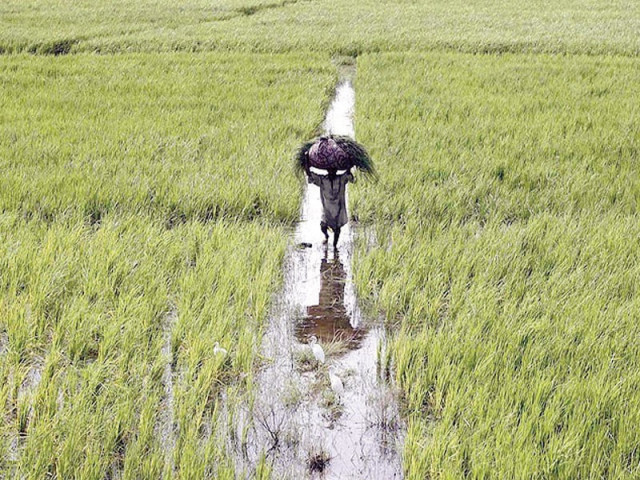Let consumers, farmers decide
Wheat crisis brewing as evident from recent price hike and shortage of commodity

Last week, the Indonesian parliament passed historic laws to liberate its agriculture market from excessive state control, opening up its food trade and increasing the role of private sector.
My good friend Rainer Huefers, who leads a think tank named Centre for Indonesian Policy Studies (CIPS) in Jakarta, has been part of the voices demanding these reforms. Some of the highlights of these changes, as reported by CIPS, are worth consideration by Pakistan’s policymakers as the country is reportedly going to face another wheat, and probably sugar, crisis in a matter of weeks.
Like Indonesia, Pakistan is a populous country and thus agricultural policies have serious implications for the productivity of farmers and food security for consumers. Here is one part of these reforms, which are directly relevant to us.
Just like Pakistan, previously, Indonesian laws only allowed considering imports when domestic supplies were insufficient. The new Indonesian law:
• Acknowledges imports as a legitimate source of food (but also seeks to protect farmers, fishermen and micro and small food actors through tariff and non-tariff trade measures).
• Drops import restrictions as a strategy to support farmers and plans to boost domestic agricultural growth instead.
• Removes penalties on imported agricultural commodities when national stocks are considered sufficient.
• Permits imports of horticulture, livestock and animal products.
It is expected that Indonesian consumers will be able to get cheaper and more nutritional food as a result of these changes. Furthermore, these laws will encourage international investors to return to Indonesia and as a result more jobs will be created for the Indonesians.
Pakistan should seriously study these changes in Indonesia and should conduct an extensive review of its laws. In fact, if such reviews have been made, which is likely the case, then there should be a public discourse leading to policy changes.
In Pakistan, earlier this year, the government, through its Economic Coordination Committee (ECC), decided to export wheat, which it thought was surplus. After a few months, it decided to import wheat, which it discovered to be short in supply.
When it asked the Trading Corporation of Pakistan (TCP) to issue tenders, it failed to decide three times. In the meantime, international prices of wheat went up considerably, while first shipment of imported wheat has just arrived. Precious time and money have been wasted in this exercise.
Wheat stock
On the other hand, the wheat stock available in the country, reportedly in government warehouses, is also waiting for government permission to be released.
I recall how there were deaths and a famine-like situation in Thar a few years ago simply because the deputy commissioner did not sign a letter for some months to release wheat.
In fact, according to some news reports, the wheat stockpiled in some warehouses in Sindh is being infested because the tenders needed to procure medicinal spray could not be awarded.
From support price for wheat farmers to procurement, storage, trade and release of stock, the government permission is needed at each and every stage. Why blame so-called mafia?
Governments have been involved in these decisions in the past as well. These decisions stem from a belief that some ministers and bureaucrats know the supply and demand of wheat better than farmers and consumers.
In their moment of self-belief, they mostly make mistakes because there is no mechanism to centralise information from the market. It is not just about crop size, it is also about expectations of consumers, traders and farmers, which are simply too complex to be understood.
Governments, in general, also believe that if somehow they let these permissions go away, heavens will fall. They see these controls as necessary tools to protect farmers and consumers.
They are sadly mistaken. As Indonesian case of reforms indicate, solutions lie in letting go of these controls, not increasing them.
The impending wheat crisis in Pakistan, as evident from recent price hike and shortage of wheat, is an opportune moment. Let us not allow another crisis. Instead of bureaucrats and politicians, let consumers and farmers make decisions.
The writer is the founder of PRIME Institute, an independent think tank based in Islamabad
Published in The Express Tribune, October 12th, 2020.
Like Business on Facebook, follow @TribuneBiz on Twitter to stay informed and join in the conversation.



















COMMENTS
Comments are moderated and generally will be posted if they are on-topic and not abusive.
For more information, please see our Comments FAQ